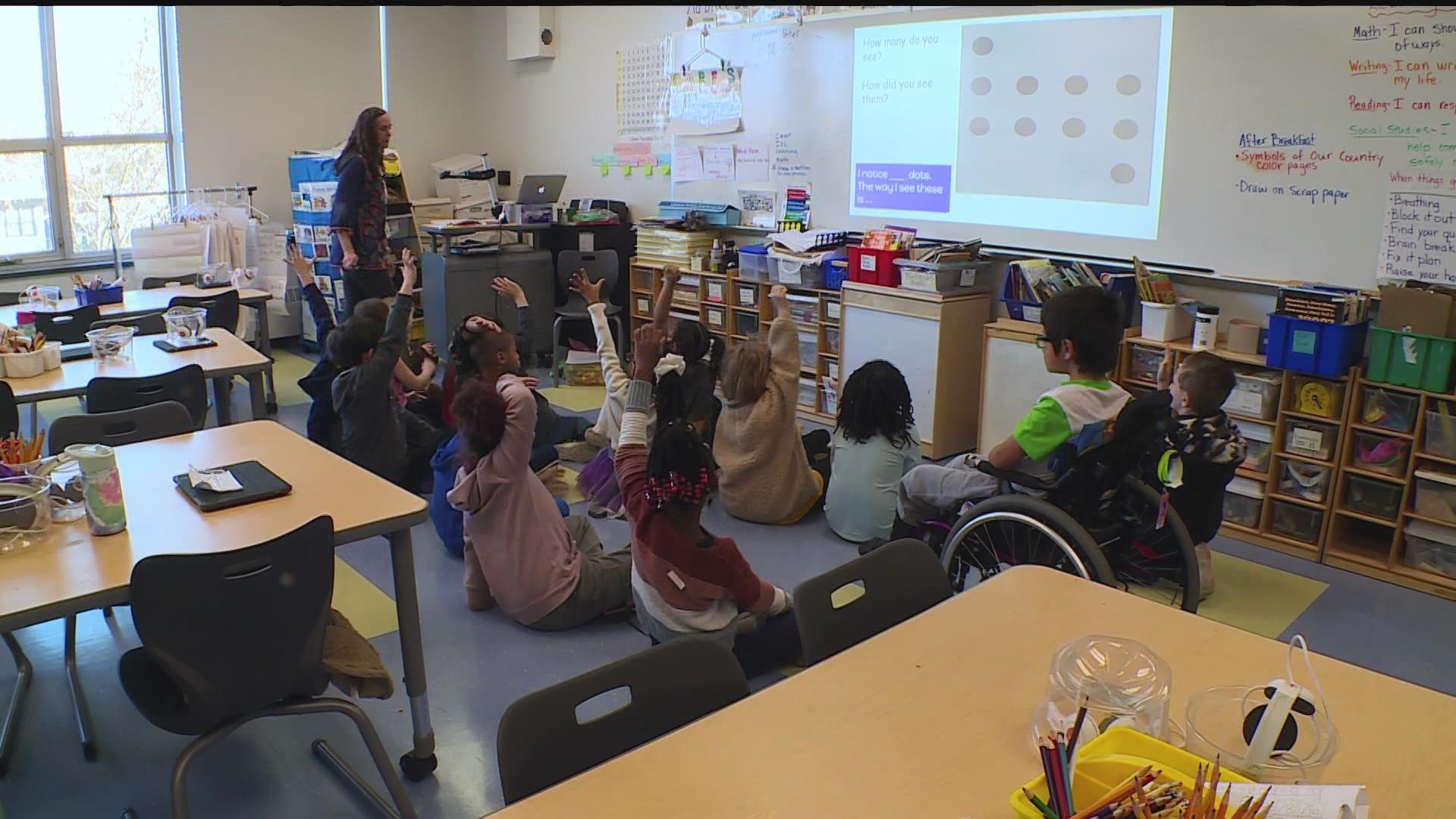ST PAUL, Minn. — The "Nation’s Report Card" shows that across the country, math scores saw their largest decrease ever.
Minnesota saw its worst average score for in math for eighth graders in more than three decades.
Saint Paul Public Schools are trying to change the equation for teaching math. The district is spending $27 million from emergency relief and Title I funding to help kids catch up on math.
The money is being spent on training and learning tools and mostly focused on elementary school education.
"How do we bring joy into mathematics?" said Patti Busta, the district's math coordinator.
She said the big focus is answering that question.
She and her team are trying to make math more interactive and social for elementary students.
"We need to really enrich those experiences where students are able to have the hands-on experiences, the time to talk with other students and have that opportunity to just socialize and grow," said Busta.
Busta said they are not only trying to grow students as mathematicians, but also help them grow emotionally.
You can see the new strategy play out in Rebecca Lund's second grade classroom at Global Arts Plus Lower Campus.
Her lessons are filled with hands-on math tools and students are asked to work with one another to solve problems.
"They are coming up with their own definitions," said Lund. "And that's where the learning happens, when they're struggling with a task that they can all approach together and work through together."
Lund's students spent their year in grade school online. Teachers said math was one of the most difficult subjects for parents to teach during online learning.
"It has definitely been a journey," said Global Arts Plus principal Chreese Jones. "It's also taken a toll on the socialization of students."
But Chreese said that she has seen a lot of growth.
The Minnesota Comprehensive Assessment shows that math proficiency increased last school year from 21% in 2020-2021 to 25%.
But the results are still under pre-pandemic levels.
"They also didn't have the opportunity to learn from each other when they were in distance learning," said Lund. "And so we're really trying to build that for them in discovering each other's mathematical thinking."
Watch more Breaking The News:
Watch all of the latest stories from Breaking The News in our YouTube playlist:

